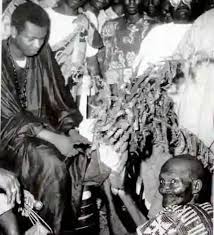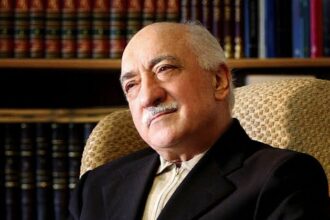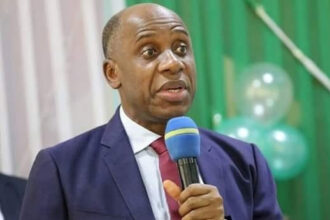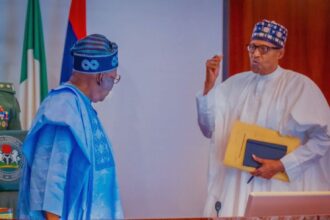In the heart of southwestern Nigeria, where the Atlantic breeze whispers through the palm-fringed coastlines and the rich tapestry of Yoruba culture thrives, a monarch stood at the crossroads of tradition and modernity.
- The Prelude: A Monarch’s Duty and a Governor’s Response
- The Legal Battle: A Clash of Titans
- Political Turbulence: Coups, Governors, and Context
- The Landmark Judgment: Reinstatement and Precedent
- The Aftermath: Cultural and Political Legacy
- Broader Significance: Tradition as a Pillar of Democracy
- Closing Thoughts: The Crown That Defied the State
His name was Oba Sikiru Kayode Adetona, the revered Awujale of Ijebuland. For decades, he was a symbol of resilience, a custodian of heritage, and a beacon of unwavering leadership.
But in the early 1980s, a storm brewed on the horizon. A clash of ideologies, a test of authority, and a challenge to the very essence of his reign. It began with a seemingly innocuous letter—a notification of a medical trip abroad. Yet, this letter would ignite a constitutional firestorm that would see the revered monarch suspended, deposed, and ultimately vindicated in the annals of Nigerian legal history.
The events that unfolded were nothing short of cinematic. A governor’s decree, a commission of inquiry, a legal battle led by Nigeria’s finest legal minds, and a military coup that altered the course of a nation’s history. In the end, the monarch emerged not just as a ruler but as a symbol of the indomitable spirit of the Yoruba people.
This is the untold story of Oba Adetona’s legal revolution—a saga of defiance, justice, and the relentless pursuit of sovereignty.
The Prelude: A Monarch’s Duty and a Governor’s Response
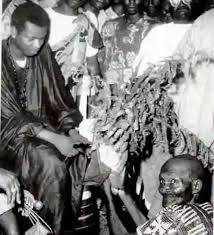
In August 1981, Oba Adetona, in his capacity as the Awujale, wrote to the then Governor of Ogun State, Chief Olabisi Onabanjo, informing him of his impending medical trip to London. The letter was courteous, detailing his itinerary and contact information. However, the governor’s response was anything but customary. He sought further details about the monarch’s health and the purpose of the trip, implying that approval was required.
This request did not sit well with Oba Adetona. As a traditional ruler, he believed that his authority was not subject to the whims of political leaders. He reminded the governor of his status and proceeded with his journey, changing his contact details to avoid further interference.
The tension between the two escalated. On November 23, 1981, the Ogun State government issued a proclamation suspending Oba Adetona from his position. The grounds cited were insubordination and misconduct. A commission of inquiry was established, led by Justice Solomon O. Sogbetun, to investigate the allegations.
The Legal Battle: A Clash of Titans
The commission’s findings were damning. It recommended the deposition of Oba Adetona, and by early 1982, the Ogun State Executive Council had formally removed him from office. The monarch, however, was not one to accept injustice passively.
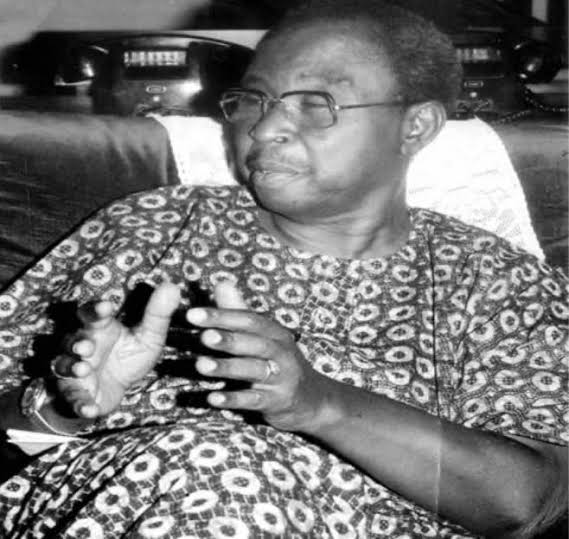
He enlisted the services of Nigeria’s legal luminaries, including Chief F.R.A. Williams, a renowned constitutional lawyer, and Chief Sina Odedina, a prominent Ijebu legal practitioner.
Their legal argument centered on two pillars:
1. Legality of deposition: The Sogbetun Commission’s findings and the government’s actions violated statutory procedures governing traditional institutions.
2. Autonomy of traditional authority: As a custodian of culture, the Awujale’s authority carried weight independent of political whims; the government had overstepped by attempting to curtail it.
This approach framed the case as not merely a personal grievance but a precedent-setting challenge for the relationship between the state and indigenous leadership structures.
Political Turbulence: Coups, Governors, and Context
While the legal battle proceeded, Nigeria underwent dramatic political upheaval. The December 31, 1983 military coup that ousted President Shehu Shagari changed the state’s power dynamics.

A new military governor, Brigadier General Oladipo Diya, took charge of Ogun State. Being an Ijebu himself, Diya understood the cultural stakes involved, which added a nuanced layer to the resolution of the conflict.
This interplay of judicial proceedings and political context illustrates how traditional authority navigated post-colonial governance structures, asserting relevance even amid national instability.Together, they mounted a formidable legal challenge against the Ogun State government, contesting the validity of the commission’s findings and the legality of the deposition.
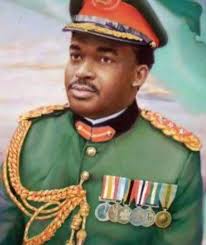
The Landmark Judgment: Reinstatement and Precedent
In 1984, the Ogun State High Court, presided over by Justice Kolawole, nullified the findings of the Sogbetun Commission. The court declared Oba Adetona’s deposition unlawful, ordered his immediate reinstatement. The verdict was more than a personal victory; it affirmed that traditional rulers could assert their rights against political overreach, provided legal avenues were respected.
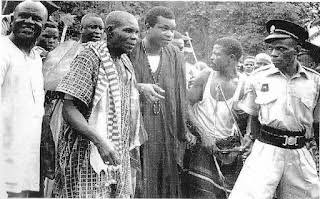
The military administration’s compliance with the court ruling reinforced the duality of Nigerian governance: civilian and military authorities must respect entrenched cultural institutions, particularly where the law supports their autonomy.
The Aftermath: Cultural and Political Legacy
Oba Adetona’s reinstatement solidified his influence not only in Ijebuland but also nationally. Over the subsequent decades, he became a vital interlocutor between traditional institutions and the government, championing education, development, and cultural preservation.
The federal government’s 2024 integration of his Post-Graduate School on Policy and Governance Studies into the National Institute for Policy and Strategic Studies (NIPSS) serves as a tangible continuation of his vision—merging traditional authority with formal governance training.
Broader Significance: Tradition as a Pillar of Democracy
Oba Adetona’s legal revolution offers enduring lessons. It demonstrates that tradition, when properly understood and defended through law, can coexist with modern governance. It also highlights the judiciary’s role in balancing state authority with historical and cultural legitimacy—a principle crucial for multi-ethnic, post-colonial nations like Nigeria.
His case has since become a reference point for scholars, policymakers, and traditional rulers, emphasizing that leadership transcends mere ceremonial presence; it involves safeguarding the principles and dignity of one’s institution.
He died on Sunday, July 13, 2025, at the age of 91. The late Monarch was installed as the king on 2 April 1960, which made him one of the longest reigning monarchs in Nigeria
Closing Thoughts: The Crown That Defied the State
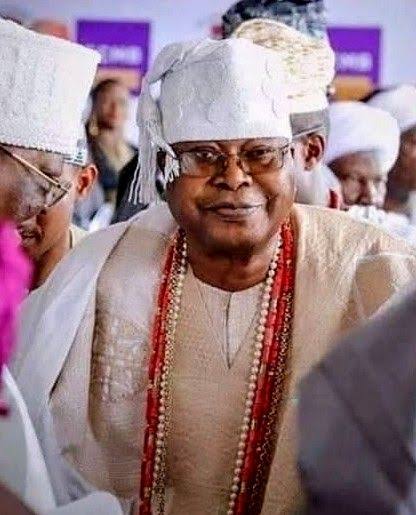
Oba Sikiru Kayode Adetona’s story transcends the courtroom and the palace. It is a tale of resilience, principle, and the quiet power of tradition in a modernizing world. By standing firm against political overreach, he demonstrated that true authority is not a matter of appointment or approval—it is earned through courage, integrity, and the unwavering defense of one’s people and heritage.
His legal triumph affirmed that tradition and modern governance are not opposing forces but complementary pillars of a nation’s identity. The Awujale did more than reclaim his throne; he reshaped the way Nigerian society perceives the role of traditional rulers, proving that their voice, rooted in history and culture, cannot simply be silenced.
Oba Adetona did not just survive a political storm—he transformed it into a landmark moment of national consciousness. His journey reminds us that leadership is measured not by the challenges one faces, but by the courage to confront them, the wisdom to navigate them, and the vision to ensure that every action resonates beyond the individual, echoing through the legacy of a people and the march of history itself.

